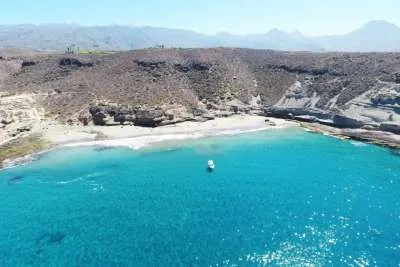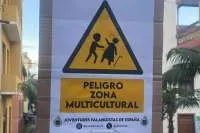Canary Islands to request EU permission to limit property purchases to non-residents
- 08-04-2025
- National
- Gobierno de Canarias
- Photo Credit: Stock Image
The Government of the Canary Islands are preparing to formally ask the European Union for permission to impose limits on property purchases by non-residents and foreign investors. The request will be presented this week by regional president Fernando Clavijo during a high-level conference between the European Commission and the EU's outermost regions (RUP), held on the French island of Réunion.
The announcement, made on Monday by Canary Islands government spokesperson Alfonso Cabello, marks the beginning of what he described as a “political and legal offensive” to gain EU support for greater control over the region’s increasingly strained housing market.
“This is the first time such a formal request will be made to the European Commission,” said Cabello, adding that Clavijo will raise the issue directly with European Commission Vice President Raffaele Fitto. “Our aim is to protect the region and its people through reasonable corrective measures, which include restrictions on non-resident property purchases.”
A Unique Legal and Demographic Context
The Canary Islands plan to argue their case based on the EU’s recognition of the special status of outermost regions, as outlined in Article 349 of the Treaty on the Functioning of the European Union (TFEU).
This article acknowledges the specific needs of regions like the Canaries, Madeira, and the French overseas departments, allowing for tailored measures to address their unique challenges.
Cabello said the Canary Islands would seek the broadest legal interpretation possible to justify restrictions on housing purchases, particularly from non-residents and foreigners, even if they are EU citizens. “We are aware that this is a legally complex path, but other achievements once seen as unlikely, such as 100% discounts on public transport or the 75% airfare subsidy for island residents, have become reality,” he added.
Population Growth and Real Estate Pressure
A key concern driving the proposal is the rapid growth in the archipelago’s population and the uneven development between islands. According to Cabello, 23% of all property sales in the Canary Islands currently go to non-resident buyers, a figure that reflects growing concerns about affordability, housing availability, and local displacement.
“This situation is unsustainable,” Cabello said. “The islands are reaching a tipping point. We must protect the Canaries not only as a tourism destination but as a home for its residents. That means regulating who can purchase homes here.”
EU Summit with Outermost Regions
The RUP summit in Réunion brings together the presidents of the nine EU outermost regions: Guadeloupe, Martinique, French Guiana, Réunion, Mayotte, and Saint Martin (France); Madeira and the Azores (Portugal); and the Canary Islands (Spain).
The meeting serves as a key forum for raising shared concerns, especially around economic, social, and environmental sustainability in geographically remote and vulnerable regions.
Cabello stressed the urgency of the request, particularly in a shifting global context where questions of economic protectionism, military spending, and centralised decision-making are again at the forefront. “We must ensure that EU progress does not come at the cost of sustainability and social justice in places like the Canary Islands,” he said.
The regional government views this as a pivotal moment to redefine housing policy within the framework of EU law, leveraging the islands’ unique status to implement targeted, corrective action before the situation worsens.
Other articles that may interest you...
Trending
Most Read Articles
Featured Videos
TributoFest: Michael Buble promo 14.02.2026
- 30-01-2026
TEAs 2025 Highlights
- 17-11-2025



























































